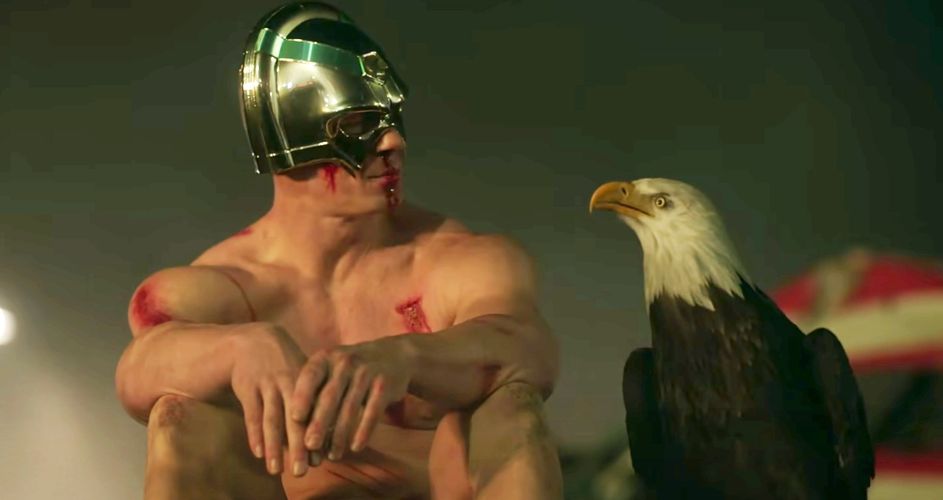
I’ve spent so much time analyzing bad screenplays lately that it’s gotten a little depressing. This would be a good time to remind everyone that I *HATE* giving negative reviews. There are so many more benefits to reviewing good scripts. For starters, I get to read something I actually like. Which is way more enjoyable than trudging through yet another average screenplay.
But I also think you get more out of a good script than a bad one. Sure, it’s great to point out a bunch of things that aren’t working in a screenplay. But all that’s really giving you guys is stuff to avoid. And nobody writes a great script if their only focus is avoiding bad screenwriting practices.
You write great scripts because you’re inspired. And there’s nothing more inspiring than reading a great story. You also get a bunch of actionable tips you can add to your screenplay. Instead of avoiding stuff, you’re implementing new character tips, new plot tips, new scene tips, new dialogue tips, all of which you know work since you’ve seen the proof of concept with your own eyes.
So I’m glad that, at least for a day, we get to celebrate writing. I watched two great shows this weekend. The first was the finale for “Peacemaker” and the second was the new Ben Stiller-directed show on Apple TV called “Severance.” Severance follows a worker, Mark, who agrees to split his consciousness in two halves. The first half exists at work. This version of him knows nothing about his normal life. The second half exists outside of work and knows nothing about his work life.
By the way, what’s cool about this show is that it comes from a first time writer, Dan Erickson. Something I love about Red Hour Productions – Ben Stiller’s company – is that they’re open to anyone who’s got a good concept. You don’t need to be Aaron Sorkin to win them over. Them taking a chance on this neophyte writer is proof of that.
Erickson’s script actually first gained attention when it appeared on the 2016 Blood List. From there, it somehow got to Red Hour. And when Ben Stiller read it, he loved it. Stiller is always looking for things that bring both incredible comedy and incredible sadness and this script had both. Still, it took five years from when Stiller first read the script to make it to air.
Imagine waiting for that as an unknown writer. You’ve got nothing else going on. A major director loves your script but, because he’s so popular, he’s getting pitched new projects every day and, at any moment, one of those projects could catch his interest and become his priority. To wait all that time and see his show come to fruition? That’s the dream we all live for, baby!
If you haven’t seen it yet, it’s one hell of a trippy show. For example, at one point, a new worker at the company says she wants to quit. The place is too damn weird. Mark points out that if she does that, it will essentially mean she’s killing herself. “How so?” She asks. “Well, since this version of you only knows this world (the work world), once you quit, everything that’s ever happened to you here disappears from existence. That version of you would, essentially, be dead.” Chew on that for a while.
Erickson’s rise to produced writer is not what I’m here to talk about, though. I’m here to talk about what makes the show so good. And, more specifically, what makes both Severance AND Peacemaker so good. There’s got to be commonality there, right? Something that explains why these two shows were so much better than all the other trash on TV?
The answer, not surprisingly, is character. But I’m not talking character in an abstract way. I’m talking about a specific type of character. And that is the character who is built around CONTRAST.
While adding contrast to a character does not guarantee that the character will be memorable, or awesome, or compelling, it exponentially increases the chances that those three things will happen.
Let’s look at why. When you have contrast in your character, it means that the character is out of balance. And because they’re out of balance, there’s always going to be conflict within them. That conflict is going to be what makes them interesting.
Let’s say you have a devoted priest who also happens to be a serial killer. For the sake of this argument, we’ll say that he only kills bad people. Think about what this character wakes up to every morning. He has to share the word of God with his followers, despite knowing that he just brutally murdered someone last night. You can’t square that away without being in extreme conflict with yourself.

Peacemaker has a similar issue. His job is to kill people. And yet, in his heart, he’s the kindest guy in the world. This means, like the priest, he’s in constant conflict with himself. It’s never as easy as point and shoot.
You can see the value of this contrast when you compare Peacemaker to his best friend, Vigilante. Vigilante is a fun character. But he’s not compelling enough to be a lead character. “Why?” you ask. Well, Vigilante, like Peacemaker, has one job – to kill. But unlike Peacemaker, he doesn’t care that he kills. He has no resistance to it whatsoever. Without that contrast, the character is fairly one-dimensional and, therefore, only mildly compelling.
Meanwhile, what’s so fascinating about Severance, is that it builds its character around the same concept – contrast – but does so under completely different rules. Mark’s contrast comes from the fact that he’s living two separate lives. The “extremes” come in the form of his home life, where he’s a sad lonely widow, and his work life, where he’s a happy and content company man.
Just to emphasize the importance of contrast, imagine this same setup but Mark was happy at both his home and work life. Or sad at both his home and work life. You need the contrast in order to create the conflict. That’s what creates dramatic questions such as, “Which one is going to win out here? The happy Mark or the sad Mark? Who is going to win out on the tug-of-war for Mark’s consciousness?”
When you don’t apply this contrast to your main character, you get characters like Nathan Drake in Uncharted. To Uncharted’s credit, it did better than expected at the box office this weekend (50 mil if you include President’s Day). But the knock on Uncharted is its excruciatingly vanilla. And “vanilla” is always what you get when you have a hero with no contrast. The fact that nothing’s rubbing up against anything else inside of this person is what’s providing a friction-free journey.
I’m sure some of you are wondering if your screenplay is doomed without contrast. Of course not. Does John McClane have contrast? He wishes he’d worked harder to keep his marriage stable but that’s not contrast. That’s personal family issues. Contrast is easier to avoid in features because you’re only with the characters for two hours and there are other ways to make characters interesting for two hours (such as giving them family issues).
However, it is essential in television that your hero contain contrast because not only are we going to be with your story a lot longer than two hours, but TV shows rely a lot more on character than spectacle, meaning the characters must be more captivating. And one way you ensure that a character is captivating is to give them that contrast. Peacemaker will always struggle with killing. Mark will always be changing back and forth between his happy work life and sad home life.
This is one of the most valuable tools you’ll ever use as a writer and if you can effortlessly integrate it into a character so that the contrast feels organic, you’re going to create a character for the ages.

